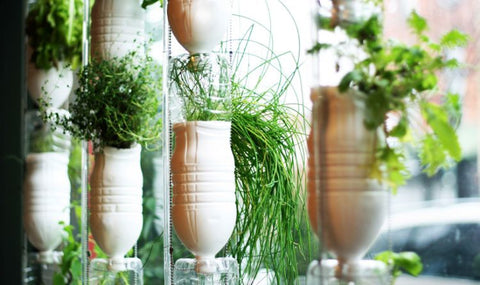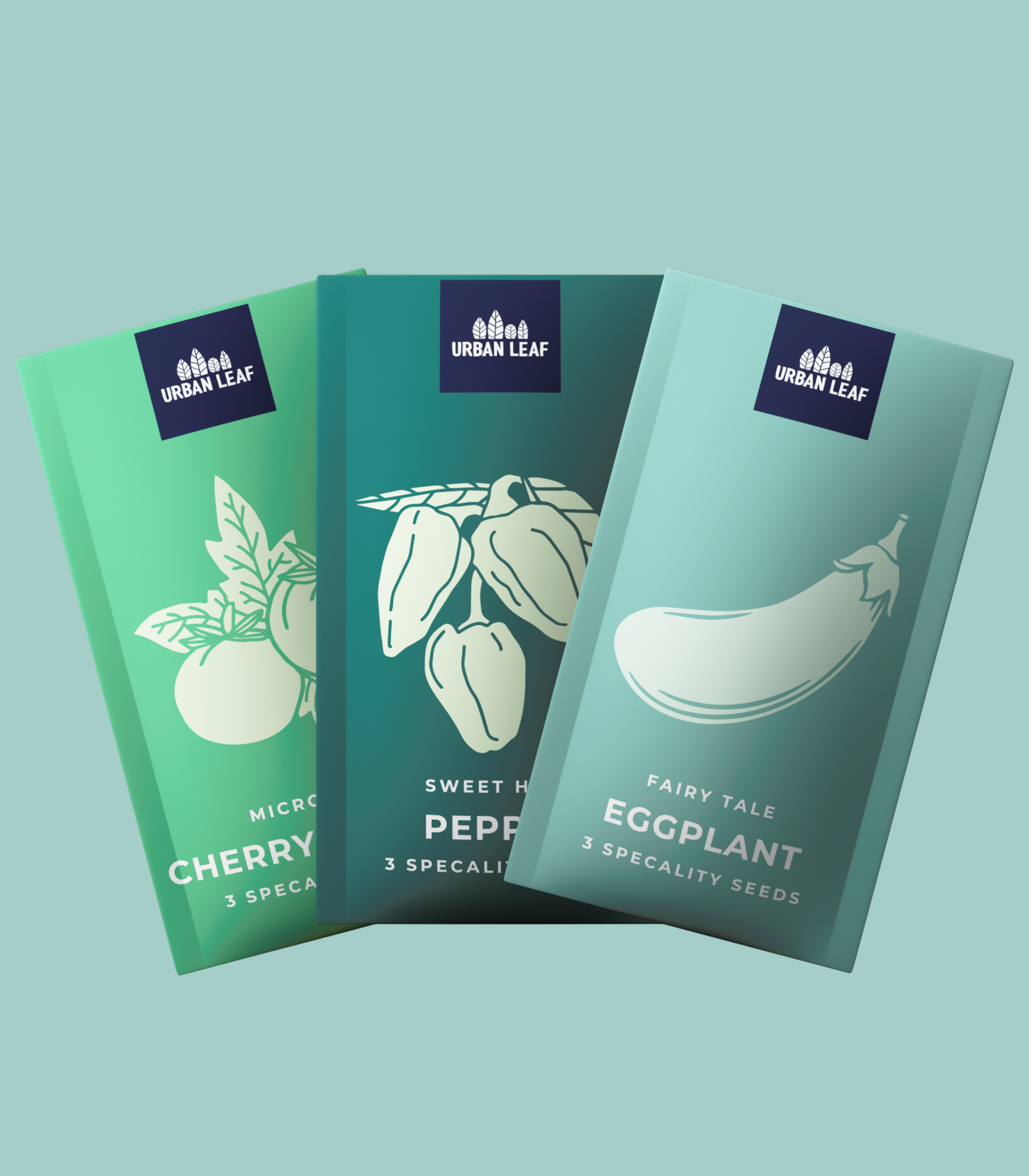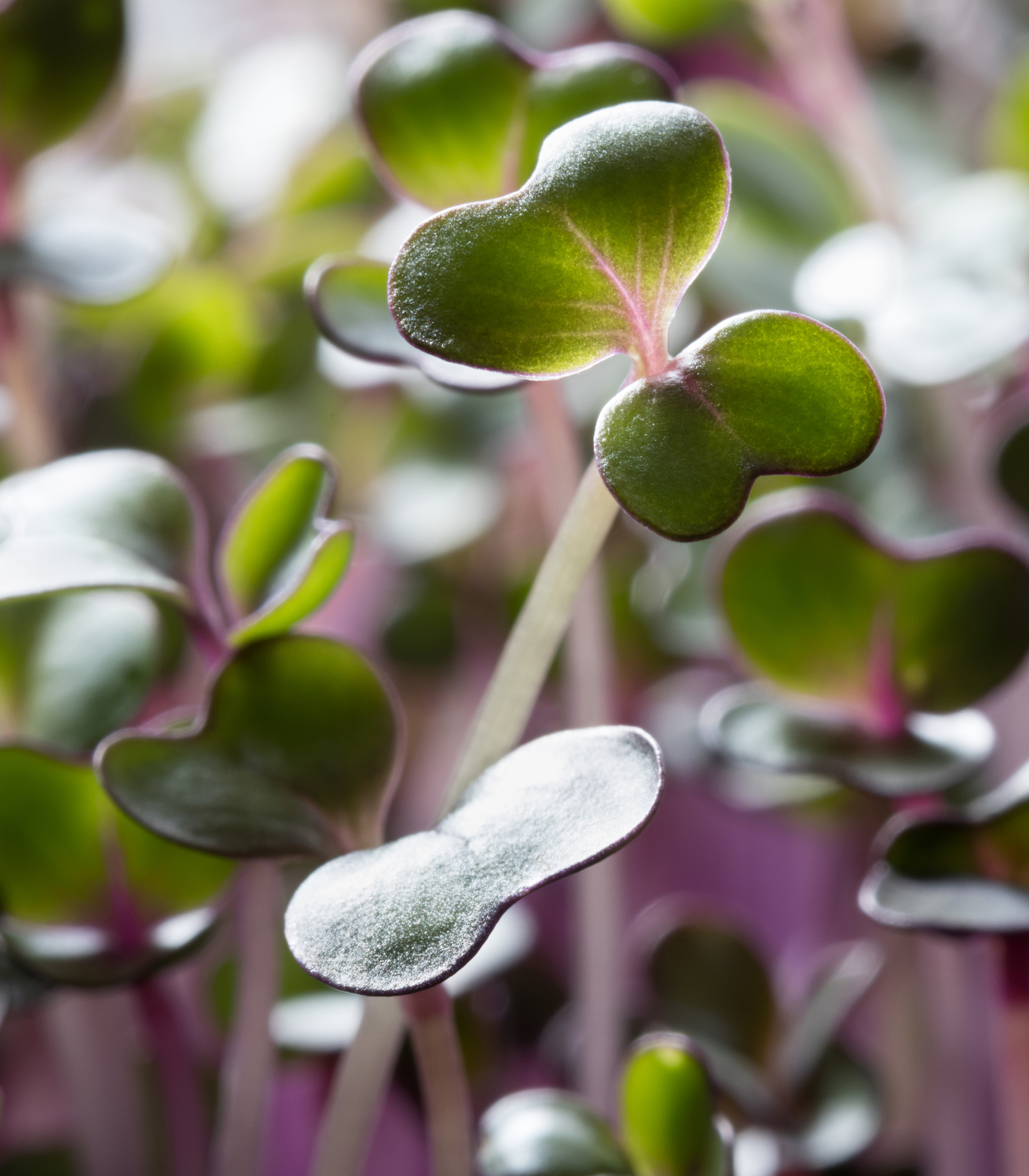As we move into winter and the cold and flu season, it's essential to arm ourselves and our families with remedies and support to stay healthy—especially as we continue to navigate a global pandemic. Many people wait until they feel a cough coming on or a sniffle before taking action. Then they reach for all the vitamin C, nasal decongestants, teas, and supplements they can find, but often it’s too late. Instead, let's focus on preventive care by building a strong immune system with the nutrients and vitamins your body needs daily. The great news? Many of the “soldiers” you need are probably already in your home or garden! If not, now is the perfect time to learn about medicinal herbs you can grow at home to help ward off those nasty seasonal bugs.
We chatted with Alisa Pospekhova, founder of Kindroot, to gain more insight into the herbs and plants you can sow in your indoor or urban garden that act as powerful medicine. Kindroot Adaptogems™ is an herbal supplement brand that combines adaptogenic plants with aromatherapy-inspired flavors in lozenges—so she definitely knows what she’s talking about!

Herbs That Can Be Used As Medicine
When you think of plant medicine, you might imagine rare shrubs in distant rainforests, but many medicinal plants grow all around us—even in the middle of busy cities like New York! Generally, all plants carry some benefit for our bodies. If you’ve adopted a plant-based diet, or even a 50/50 approach, you’re already getting tons of nutrients that support your immune system and overall health daily. The simplest way to reap the benefits of plants? Eat plenty of salads, veggie-based soups, teas, and stir-frys to boost your immune health at the most basic level.
Alisa explains, “Once you process various herbs into more potent concentrations through drying or extraction, they become more medicinal and can address specific concerns. For example, thyme is delicious in seasonal dishes, but a highly concentrated thyme tincture can be taken for respiratory support.”
Medicinal Herbs You Can Grow Indoors
Great news—you can pretty much grow any fresh herbs indoors. Alisa recommends microgreens, which thrive in small spaces and have a short growing cycle. “We know that none of us have patience these days!”
Microgreens are packed with nutrients and add delicious flavor to a variety of dishes. Alisa’s favorite variety? “The nice spicy zest of radish!” There are so many ways to use microgreens and different flavors and varieties that you’ll never get bored. Alisa suggests making a simple salad dressing by finely chopping microgreens, adding salt, pepper, mashed avocado for creaminess, and mixing it all with olive oil. The result is fresh, delicious, and nutritious!

Chamomile
Chamomile has significant therapeutic value and can improve cardiovascular health, stimulate the immune system, and even offer some protection against cancer. How to use: add dried chamomile flowers to hot water to brew a tea.
Parsley
Parsley is rich in vitamins and antioxidants, with anti-bacterial properties that support eye, heart, kidney, and bone health. Use its leaves in salads, as a garnish in soup or sandwiches, or in a pesto recipe!
Rosemary
Rosemary is high in antioxidants, antimicrobial, and anti-inflammatory compounds. It’s often used to improve digestion, enhance memory and concentration, treat joint pain, and even help prevent hair loss. Try it in an oil to apply to your face, in your shampoo, or with your cooking! Learn how to make rosemary oil.
Basil
Basil, known as the “king of herbs,” contains antioxidants and anti-inflammatory properties useful in combating stress, reducing fever, boosting the immune system, and more. Top your pizza with it, use it in pesto, or add it to your tomato sauce!
To be ready for flu season, focus on preventative care: work on your immune health year-round. Alisa explains, “There are no shortcuts. Dietary and lifestyle modifications are best. Eating a healthy diet with lots of greens (maybe your own homegrown microgreens?), getting plenty of sleep, and managing stress are all crucial, though challenging, in our busy lives.” Herbs and supplements can be a wonderful addition to support your health, too. Incorporate herbs and adaptogens into your daily coffee, smoothie, or salads, and consider immune boosters like Vitamin C, Reishi Mushroom, and Astragalus for extra support.
Adaptogens
What are adaptogens? Alisa explains, “Adaptogens are a class of herbs and mushrooms that help our bodies withstand the negative effects of stress, so basically, all of us need them all the time!” Most adaptogens look like regular plants or bushes, while some are more root-based. There are natural sources of medicine all around us that we don’t even recognize!

Can You Grow Adaptogens?
Great question. Alisa says that while some adaptogens, like mushrooms, require specific environments or know-how, others that are herb-based can definitely be cultivated, such as Holy Basil or Gotu Kola.
Speaking to an herbalist, we were eager to know what herbs Alisa swears by and what she doesn’t go a day without. “Running my own business and working long hours, I am generally focused on two things—stress control and immunity! Luckily, adaptogens are perfect for both as they support our overall health through stress relief and immunity support. Some of my favorites include Ashwagandha and Reishi Mushroom—they help keep me in balance.
When I need a boost of energy, I supplement with Maca or Schisandra. And if I’m feeling particularly stressed, Holy Basil (Tulsi) is my go-to herb—it’s like having a reliable best friend.”
Incorporating More Plant Medicines into Your Routine
Now that we understand how powerful plants can be in supporting not just our immune health but our overall well-being, how can we incorporate them into our daily lives?

Cooking
Using herbs in your recipes is one of the simplest and most affordable ways to incorporate medicinal herbs into your routine. You’re likely already doing this more than you realize! Alisa highlights that common culinary herbs like rosemary and thyme are highly protective of your lungs and can easily be added to your diet through cooking or as garnishes.
Powders
If you love smoothies or desserts, consider using functional herbs in powdered form. Alisa recommends adding Maca root or Reishi mushroom powder to smoothies or coffee for an energizing pre- or post-workout treat.
Teas
Herbal teas are another great option, with many pre-blended varieties available. Or, you can dry your own herbs! Alisa suggests shopping for teas based on your needs—for example, try lavender or lemon balm tea if you're seeking relaxation.
We hope these immune-boosting tips help you feel more equipped and confident to use what’s around you to boost your immune health. Write to us and let us know how you’re preparing for winter and flu season. Follow Alisa at Kindroot for more info on adaptogens and how to use them!










There are no comments for this article. Be the first one to leave a message!